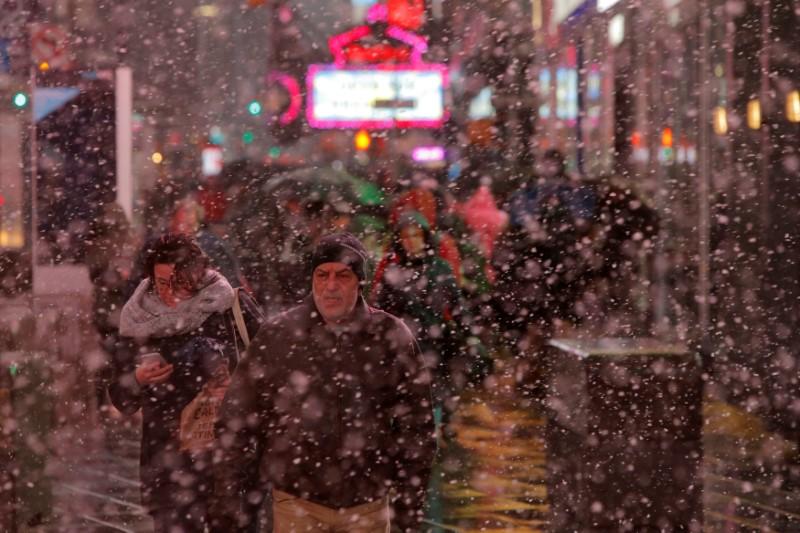PRINCETON, NJ–Some 1.8 million customers remained without power throughout the eastern United States on Saturday, and communities on the New England coast faced more flooding a day after a powerful storm snapped trees, downed wires and killed at least seven people.
The remnants of the storm, known as a nor'easter, continued to buffet the northeastern United States with wind gusts of up to 50 miles per hour even as it moved hundreds of miles out to sea, hampering efforts to restore power.





